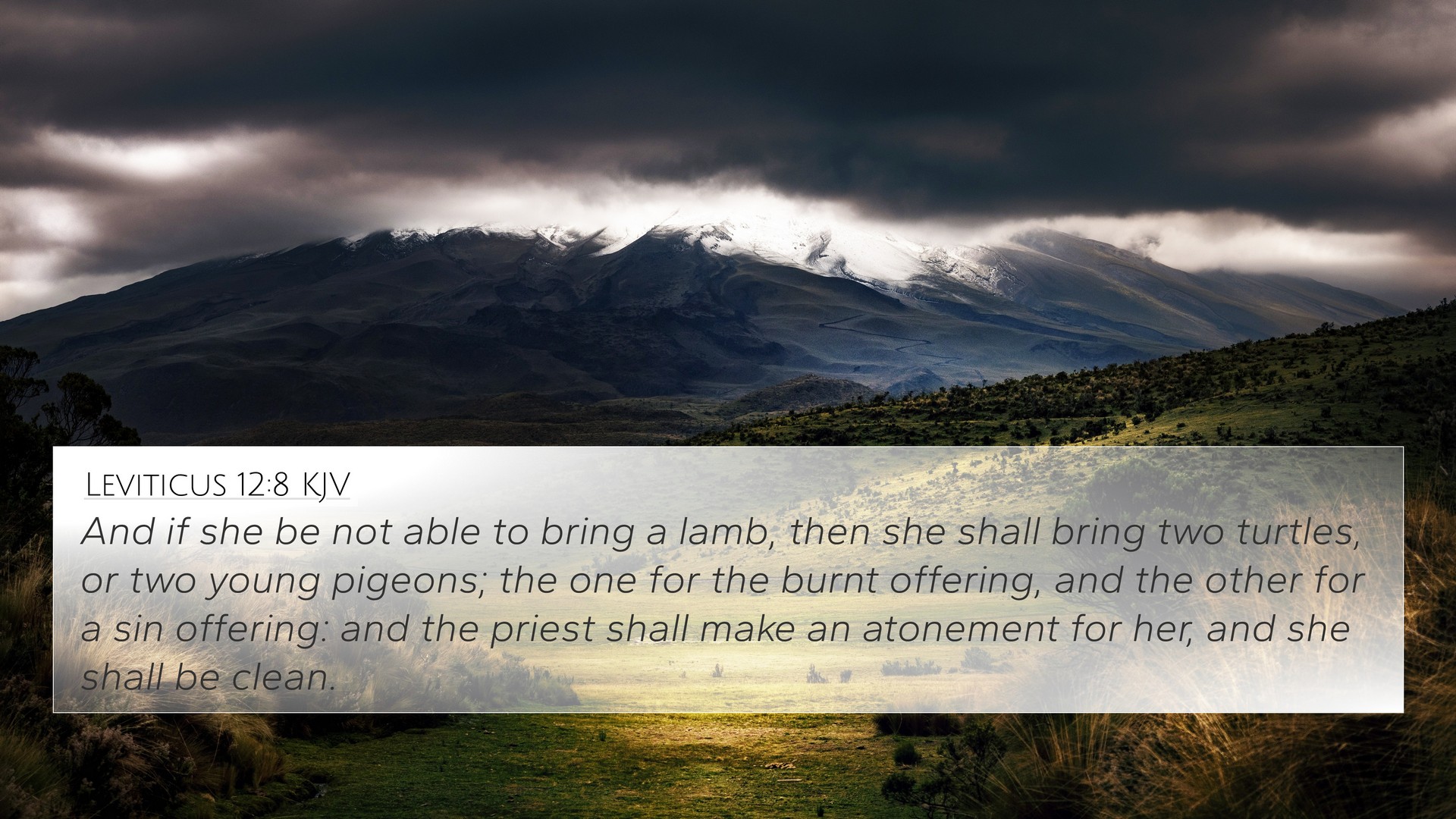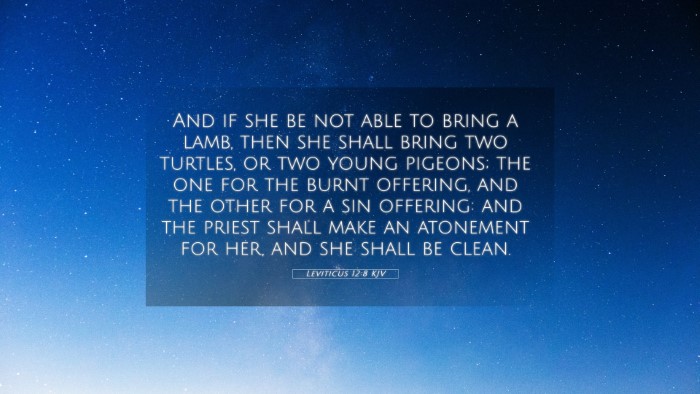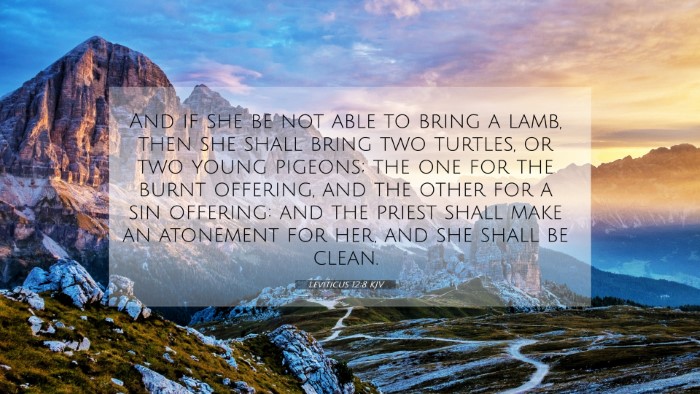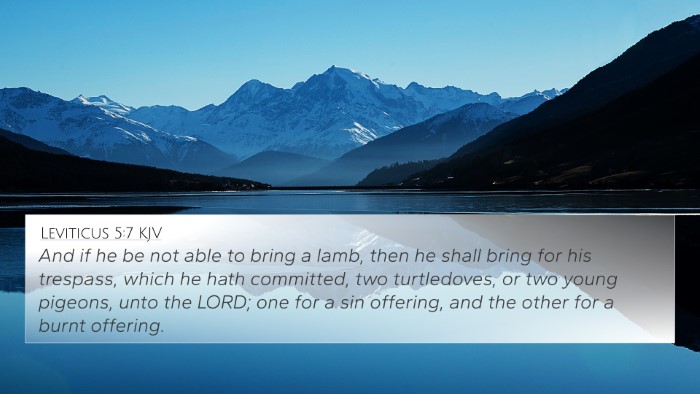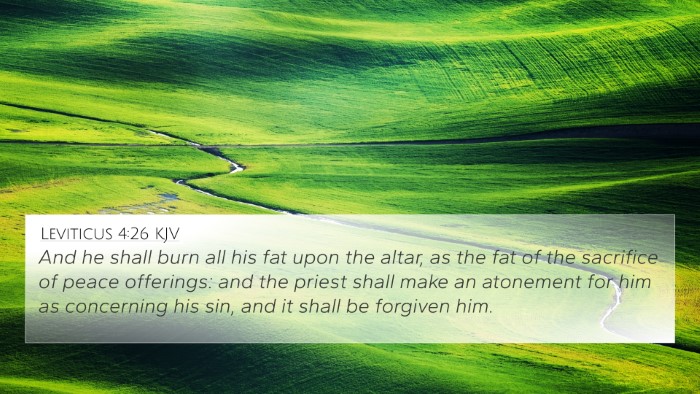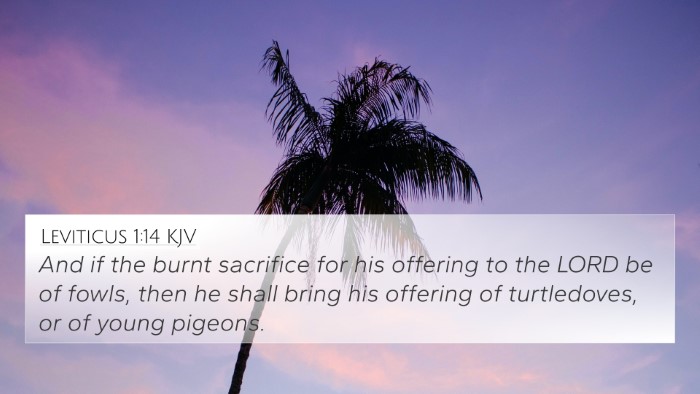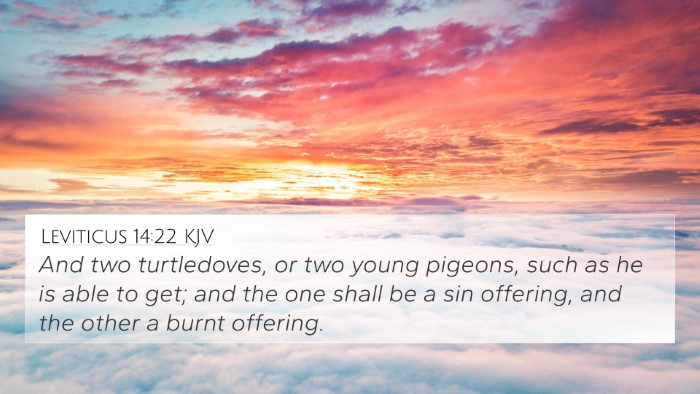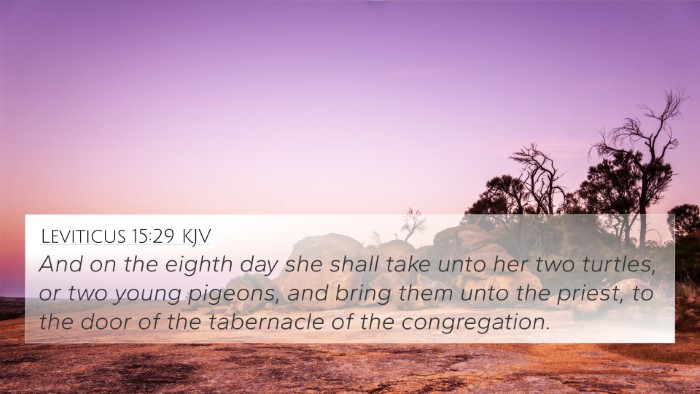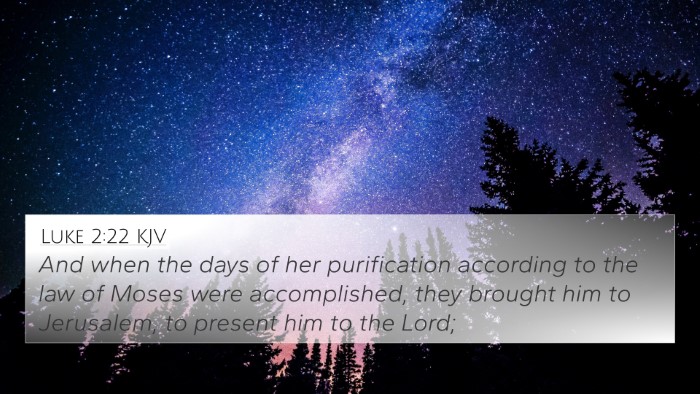Understanding Leviticus 12:8
Leviticus 12:8 states: "And if she be not able to bring a lamb, then she shall bring two turtles, or two young pigeons; the one for the burnt offering, and the other for a sin offering: and the priest shall make an atonement for her, and she shall be clean." This verse is crucial within the context of the Mosaic Law, which outlines various regulations for the purification of women after childbirth.
Summary of Insights
Insights from prominent public domain commentaries reveal that:
- Matthew Henry comments on the importance of sacrificial offerings as a means of atonement, highlighting the mercy of God in allowing an alternative offering for those who could not afford a lamb.
- Albert Barnes emphasizes the significance of the burnt offering and the sin offering within the Hebrew sacrificial system, showcasing how they serve distinct purposes in restoration and atonement.
- Adam Clarke points out the inclusivity of the sacrificial system, providing a path for the poor to still partake in the process of cleansing, reflecting God's concern for all, regardless of their economic status.
Thematic Connections and Cross-References
Leviticus 12:8 introduces themes of atonement, cleansing, and God's mercy. These can be examined through various Bible verse cross-references:
- Leviticus 5:7: Discusses the provision for those who cannot afford a sheep, emphasizing God's compassion.
- Luke 2:24: References Mary and Joseph's offering of two doves, connecting New Testament practices to Mosaic Law.
- Matthew 9:13: Jesus references God's desire for mercy, not sacrifice, indicating the heart behind offerings.
- Isaiah 1:11: Expresses that God is not pleased with meaningless sacrifices, reinforcing the spirit of worship over ritual.
- 1 Peter 2:24: Speaks of Christ bearing our sins, connecting the sacrificial system to the ultimate sacrifice of Jesus.
- Hebrews 10:4: Notes the insufficiency of animal sacrifices, which leads to a deeper understanding of Christ's atonement.
- Psalm 51:16-17: Affirms that God desires a contrite heart rather than mere sacrificial offerings.
Exegesis: Interpretation and Application
This passage reflects Israel’s sacrificial system, where offerings are pivotal for sin atonement. It is a reminder of God's grace to those unable to bring a higher offering. The allowing of two pigeons instead of a lamb speaks volumes about God's attention to the needs of individuals.
Practical Implications
The implications drawn from Leviticus 12:8 invite believers to consider:
- The importance of accessibility in worship; God welcomes all who come to Him, regardless of their resources.
- The essence of offerings is not merely in the act but in the heart's posture of repentance and trust in God’s provision.
- The continuity of themes from the Old Testament to the New Testament shows the unchanging character of God and His covenant with His people.
Conclusion
Leviticus 12:8 is an instructive verse that opens the door to understanding God's overarching theme of redemption and grace. It sets the stage for deeper explorations into sacrificial offerings and their ultimate fulfillment in Christ, linking the Old and New Testaments and illustrating the rich tapestry of connections between Bible verses.
Further Study and Tools for Cross-Referencing
For those interested in digging deeper into the connections presented in this verse, consider utilizing various tools for Bible cross-referencing, such as:
- Bible concordances that highlight connections between similar themes.
- A Bible cross-reference guide to navigate between related scriptures.
- Cross-reference Bible study methodologies to enhance understanding of Biblical themes.
- Comprehensive resources that allow for a deeper comparative analysis of scripture.
By employing these tools, believers can enhance their engagement with the Scriptures, leading to a more fruitful study and appreciation of the interconnectedness of God’s word. Exploring these Bible verses that relate to each other enriches one’s faith and understanding of God's message throughout the Bible.
